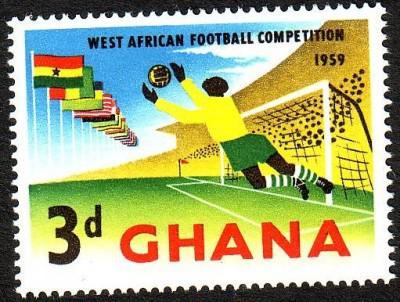
(Photo: Footysphere via Flickr)
Football (soccer) in Africa is a burgeoning business, on the field as well as off it. Take, for example, the popular MTN Soccer Academy reality TV show. What started as a reality show for aspiring players in Ghana grew to include participants from Nigeria in its third season and now includes players from other West Africa countries – a microcosm of the tremendous potential for marketing, investment and job creation in Africa’s football industry. But it’s also a microcosm of how African countries and their football systems are complicit in the continent’s underdevelopment; the show’s ultimate prize is the chance to join a European club, making it no different than the academies designed to export Africa’s raw football talent.
Those academies are central to the lesser known twin of the brain drain conundrum in Africa, the muscle drain. Once used to describe the Atlantic slave trade and the millions of people who were swept off the African continent, today it is also used to describe the flight of African football talent to the West, mainly in Europe. While signing with European teams is exciting for African footballers and their fans, this migration has played a central role in the underdevelopment of the sport in Africa.
Football academies have mushroomed on the continent since the 1990s. Many of them are funded by European clubs, which makes talent scouting easier for European agents. This systematizing of the footballer exodus bears a striking resemblance to the exportation of Africa’s raw materials to Europe, North America, and Asia, where manufacturing centers reap the lion’s share of profits from their use.
As these academies seek to groom young football talent for eventual ‘shipment’ to Europe, little emphasis is placed on basic education. All too often these youngsters lose out on the crucial education they need to get jobs at home, and for the ones who make it to tryouts in Europe, many are simply abandoned once they get cut. Human rights activists are becoming increasingly alarmed by this trend and calling the importation of young African players to Europe a new form of child trafficking.
Conversely, many academies have been founded by Africans and have no affiliations with European teams. African countries, like their counterparts in Latin America, have a vested interest in their footballers joining European leagues because of the prestige they bestow upon their homelands. Historically, athletes of international caliber from football phenoms to boxing heroes and long distance running champions have been used by African nations as a political tool to gain positive recognition within the international community. That was particularly true in Africa during the early post-colonial period when infant nations were seeking international support and asserting their nationhood.
Although sports have a unique ability to create national unity and pride, governments over-emphasized the political utility of international superstars at the cost of developing competitive sporting industries.
Academies aside, there are many other ways in which Africa contributes to football’s underdevelopment. The mismanagement of football in Africa is no different than in any other industry. Corruption, maladministration, poor leadership and violence have all shaped football’s trajectory on the continent.
Stadium violence has been reported across Africa from Accra to Johannesburg. I read an editorial in Ghana’s Graphic Sports voicing concern about the hooliganism being displayed in Ghana’s leagues. Reports of game rigging in Africa are not uncommon and matches are often rescheduled or canceled because of administrative problems. The football association election in Kenya was recently postponed for the third time.
If football in Africa could be managed effectively there is no telling how much it could grow and flourish on a continent of a billion people and counting. While football is no magic answer to economic growth and poverty reduction in Africa, it is one of the few industries, such as cellular phones and IT services, that have an immediate domestic market in Africa.
South Africa’s hosting of the 2010 World Cup is a clear sign that football in Africa has come a long way, but the outward indicators of progress, such as improved sporting infrastructure and the number of players competing on the international stage will remain hollow achievements without a holistic and sustainable approach to football as an industry that creates jobs as well as unity.
Private sector development plays a central role in economic and democratic reform processes, so wouldn’t it make sense to pay more attention to football’s management in Africa? Football industries can create short-term construction jobs and stable service jobs in the long-term, assuming cities and countries make new commitments to cultivating competitive soccer leagues at home instead of selling players to Europe. It’s time to recognize this potential and consider football and other sports as crucial to development.

